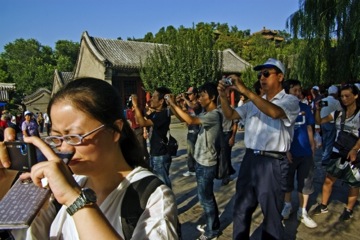
Photos: Fotos China by Jorge Santiago
“Do you consider yourself Chinese or American?” the Chinese man sitting across from me on the plane asked in Mandarin.
“American,” I answered after a short pause. Having been born and raised in the United States, I believed it to be the only appropriate response.


